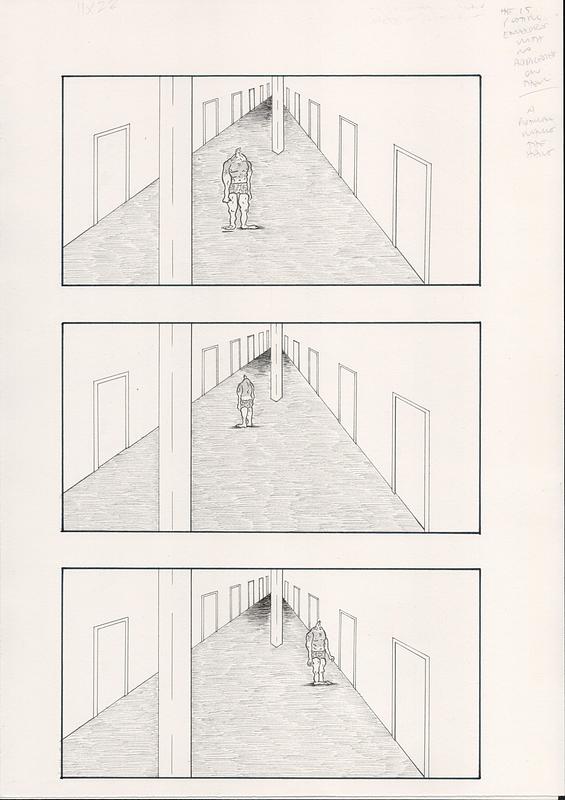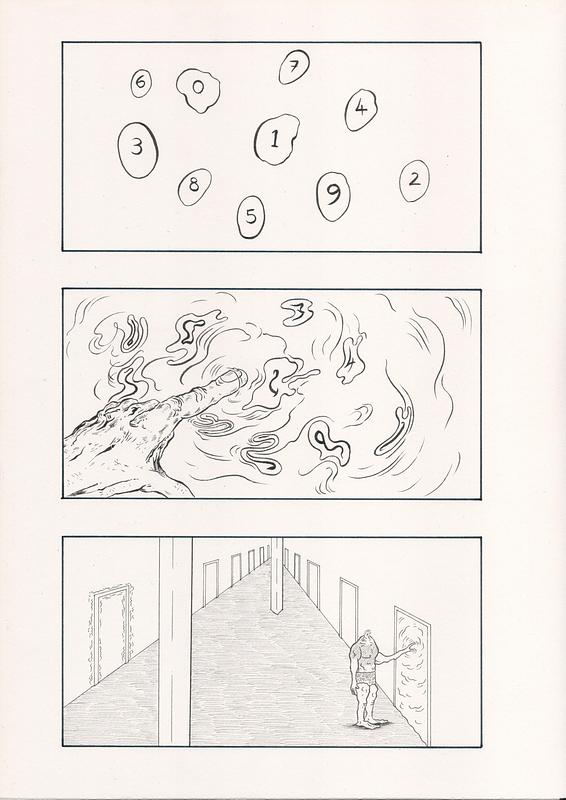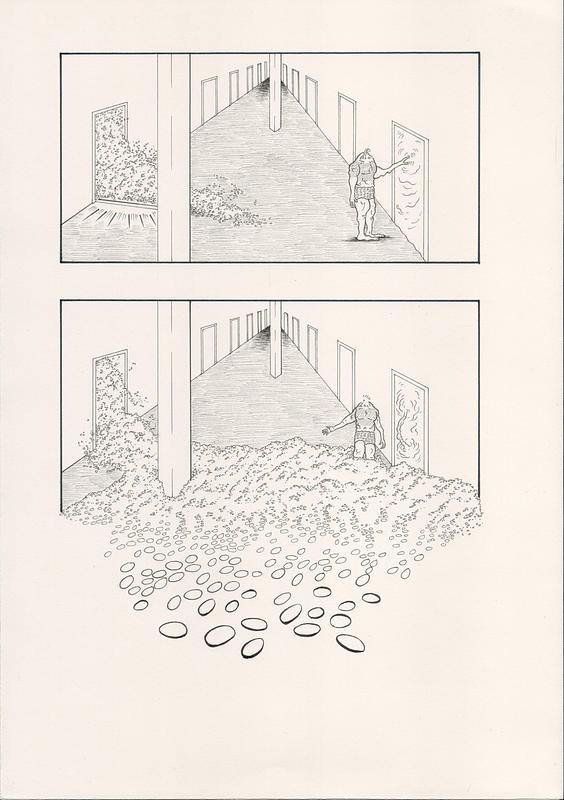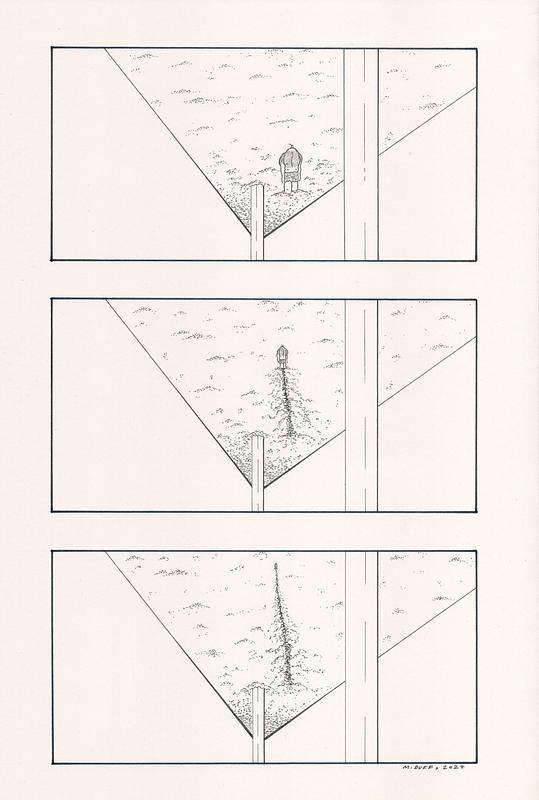Looking for all Articles by Malcy Duff?
The Uncertain Man and the Hotel: Comic panels as portals to somewhere new
This article was written in 2024 by Edinburgh-based cartoonist Malcy Duff.
Sheets of paper with squares drawn on them
In 2014, I began working with Scottish Book Trust, travelling across Scotland carrying a bag containing a few sheets of paper with squares drawn on them. It might be fair to ask why Scottish Book Trust would employ a person to be doing such a thing. The answer is, of course, that these squares were comic panels. The comic panel is not just a square drawn on a sheet of paper, but a portal that allows us to travel to timeless places, both far and near, safely and confidently.

Enter the panel
The blank page can sometimes seem like a vast opaque expanse, without a doorbell, door handle, or for that matter, a door! The panel is the page’s doorway, inviting the cartoonist to explore the infinite space the page has to offer through these framed portals. The panel can be seen as the first mark on the page, and an encouragement to add to these marks. It has happened on more than one occasion when I have been talking to a group that when I turned my back to them for a minute, and then turned to face them again, they were gone.
Thinking I had said something wrong, or assuming everyone had got bored and left, I went to their tables to collect the sheets of paper to put back in my bag and make my way home. It was when I looked down at the tables I realised where they had gone. The participants were inside the panels, exploring new worlds, communicating with characters and environments of their creation.


The pebble
The comic panel is in constant transition. Like a pebble in a path, it is part of the journey. Although it appears static when isolated, the panel moves when it lives and breathes within a community of other panels. Its very existence is to encourage movement, taking us on a trip across the page, encouraging participation, communication and connectivity. The transitional nature of the comic is also reflective of a young person’s life and can become a creative safe space to articulate and share with others the changes we experience that are sometimes difficult to express. This is one reason why the comic format can be a relatable space for young people to tell their own stories.


Delivering post to the postperson
One of my favourite elements of running sessions for Scottish Book Trust is spending time with groups of people while they become cartoonists. A collective creative journey is important and inspirational. The cartoonist is essential to the comic, and yet we often encounter them separately. Who drew this? How did they draw this? What pen did they use? Even the many meetings I had with the late John Miller, who would deliver me his amazing pages by hand to the popcorn counter at a cinema where I used to work, would only create more mystery around his work.
I am very lucky to have been in the same room as many young cartoonists over the past 18 years, while brains are bubbling and pens are twitching. Witnessing people fill panels with their imagination, their dreams, and themselves is not like anything else, and transforms these pieces of paper with squares drawn on them into a realm way beyond A4 or A3 sliced dried pulp.
I’m off to pack my bag, and find some pebbles to walk on. I’ll see you in the panel.

About the author
Malcy Duff is a cartoonist from Edinburgh. His comix include The Pineapple, The Banana / Skin Joke, A 52 Second Silence for Topsy and Rrobots. His work has been published by a variety of magazines and exhibited internationally, including shows at DCA Dundee, Talbot Rice Edinburgh, ICA London and Catalyst Arts Belfast. To explore more of Malcy’s work, see his comic I Don’t Know What I’m Doing(this link will open in a new window) on The Comics Journal website.
With Scottish Book Trust, Malcy has delivered workshops through our Live Literature programme, which funds author events in schools, libraries and communities across Scotland. If you’re interested in working with Malcy, you can find out more about him on his listing on the Live Literature Authors Directory.
If this article has inspired you to dive into a comic panel, you can find out more on the resources for writers section of our website. For schools, you can also look at our how to write a comic book scene learning resource or visit our Reading Schools website to learn more about the benefits of access to authors(this link will open in a new window).